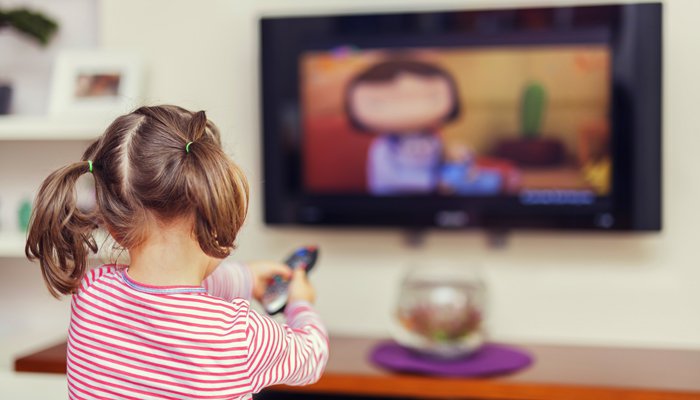Is watching mobile, TV affecting my child development
Does digital media exposureaffects my child development?
Technologic innovation has transformed media and its role in the lives of infants and young children. More children, even in economically challenged households, are using newer digital technologies, such as interactive and mobile media, on a daily basis.
Screen time:
The concept of “Screen time” hence has evolved with the excessive use of digital media. Screen time is the total duration in a day, a child is exposed to all digital screens(eg mobile, laptop, i-pad, TV etc).
Infants and toddlers:
Children younger than 2 years need hands-on exploration and social interaction with trusted caregivers to develop their cognitive, language, motor, and social-emotional skills.For children younger than 2 years, evidence for benefits of media is still limited, adult interaction with the child during media use is crucial, and there continues to be evidence of harm from excessive digital media use. Children exposed to mobiles during 1st 2 yrs are at risk of developing autism.
Preschool kids :
The higherorder thinking skills and executive functions essential for school success, such as task persistence, impulse control, emotion regulation, and creative, flexible thinking, are best taught through unstructured and social (not digital) play,as well as responsive parent–child interactions.
Health concern and media use in children:
The various health concern due to excessive screen times are:
- Obesity: Heavy media use during preschool years is associated with significant increases in BMI,and sets the stage for weight gain later in childhood.
- Disturbed sleep: Increased duration of media exposure in the bedroomhave been associated with fewer minutes of sleep per night.
- Affects child development: Studies show associations between excessive television viewing in early childhood and cognitive,language, and social/emotional delays,likely secondary to decreases in parent– child interaction when the television is on and poorer family functioning in households with high media use.
- Risk for Autism: There has been increase number of children with autism and many of them have been exposed to excessive mobiles and i-pad during early development phase(esp 1-2 yrs of age)
Parental media use affects child :
Heavy parent use of mobile devices is associated with fewer verbal and nonverbal interactions between parents and children 46 and may be associated with more parent-child conflict. Because parent media use is a strong predictor of child media habits,reducing parental media use and enhancing parent–child interactions is an important area of behavior change.
Recommendations from American Academy of Pediatics(AAP):
- For children younger than 18 months, discourage use of screen media other than video-chatting.
- For parents of children 18 to 24 months of age who want to introduce digital media,they choose high-quality programming/apps and use them together with children, because this is how toddlers learn best. Letting children use media by themselves should be avoided.
- In children older than 2 years, limit media to 1 hour or less per day of high-quality programming. Recommend shared use between parent and child to promote enhanced learning, greater interaction, and limit setting.
- No screens during meals and for 1 hour before bedtime.
- Avoid fast-paced programs (young children do not understand them as well), apps with lots of distracting content, and any violent content.
- Turn off televisions and other devices when not in use.
- Avoid using media as the only way to calm your child. Although there are intermittent times (eg, medical procedures, airplane flights) when media is useful as a soothing strategy, there is concern that using media as strategy to calm could lead to problems with inability of children to develop their own emotion regulation.
- Monitor children’s media content and what apps are used or downloaded. Test apps before the child uses them, play together, and ask the child what he or she thinks about the app.
- Keep bedrooms, mealtimes, and parent–child playtimes screen free for children and parents. Parents can set a “do not disturb” option on their phones during these times.
So summarising,
- Children under age 2 don’t learn from screens as well as they do from live interactions.
- Co-viewing media with parents can protect young kids against many downsides of screen time.
- For less than 2yrs, do not expose to digital media(except video chatting) and for 2-5 yrs less than an hour/day.
- Television viewing time is correlated with obesity in youth.
- Meeting sleep, screen time and physical activity guidelines is associated with the best mental health outcomes in teens, but few adolescents meet all three.
In case of any further querries consult with pediatric neurologist.










Leave a Reply